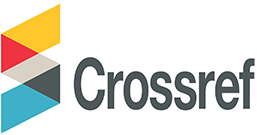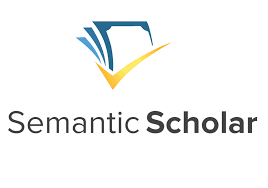Directions of Regulating the Environment That Affect the Level of Development of Students' Intellectual Skills
DOI:
https://doi.org/10.69760/aghel.0250040014Keywords:
intellectual skills, metacognition, metacognitive skills, creative thinking, interactive learning, psychological support, facilitator, motivation, reflectionAbstract
The article shows that intellectual and creative activity of everyone living in the "Techno-democratic information society" becomes a paramount requirement, and for this it is desirable for every member of this society to rise to the level of a subject of intellectual skills, they must have information culture and technological literacy.
The research presents the characteristics of "Education 4.0", which provides an effective environment for the formation of intellectual skills, and the groups of intellectual skills that must be formed in this system, formulated on a certain logical basis.
The article draws attention to the fact that these tasks are designed on the principle of modeling the structure of various intellectual skills. As students complete them, they acquire intellectual skills such as determining the purpose of their work, systematizing educational material from this point of view, independently collecting material, etc.
The work focuses on the didactic principles that are necessary for selecting and systematizing tasks to be applied for the purpose of forming intellectual skills, and organizing students' activities on them.
References
Abdullah, D. (2018). Changing education training paradigms from industrial 4.0 to education 4.0. International Congress on Social Sciences (INCSOS 2018, Quds), 13(15), 147-171.
Alizadeh, A. E. (2004). Psychological problems of the modern Azerbaijani school. Baku: Pedagogika. 432 p.
Dario, A., Alessandro, C., Marta, F., & Elpido, R. (2019). Smart education in the context of Industry 4.0. IEEE Global Engineering Education Conference (EDUCON), 2019, 40-45.
Ercan, Ö. (2018). Evaluation of new trends in education and Education 4.0. University Research Journal, 1(1), 25-30.
Fatih, D., Elif, İ., & Nurdan, K. (2019). Education Program 4.0 as a tool for realizing the targeted transformation in higher education. Bayburt Education Faculty Journal, 14(8), 432-466.
Feyziyev, C. A., Ibrahimov, F. N., & Bediyev, S. R. (2011). Didactics [Textbook]. Baku: Mutarjim. 624 p.
General psychology (A. V. Petrovsky, Ed.) [Translation from the second edition]. (1977). Baku: Maarif. 494 p.
Hristian, K. (2019). Challenges and opportunities for education in the Fourth Industrial Revolution. African Journal of Public Affairs, 11(3), 78-94.
Hussin, A. (2017). Education 4.0 made simple: Ideas for teaching. International Journal of Education and Literacy Studies, 6(3), 92-98.
Ibrahimov, F. N., & Huseynzadeh, R. L. (2013). Pedagogy (Vol. 1) [Textbook]. Baku: Mutarjim. 708 p.
Li, L. (2020). Education supply chain in the era of Industry 4.0. Systems Research and Behavioral Science, 37(4), 579-592.
Mammadova, E. (n.d.). Technological literacy: The key to success in the digital world [LinkedIn post]. Retrieved from https://tr.linkedin.com/posts/elmira-mammadova-01807722
Mascheroni, G., & Olafsson, K. (2016). The mobile internet: Access, use, opportunities and divides among European children. New Media & Society, 18(8), 57-79.
Methodology and pedagogy (Textbook based on the updated framework document). (2024). Baku: Maximum Training Center. 182 p.
Mirzajanzadeh, A. Kh. (1990). Introduction to the specialty (Textbook for oil and gas profile higher schools). Baku: BSU Publishing House. 368 p.
Priya, S. (2019). Digital revolution of Education 4.0. International Journal of Engineering and Advanced Technology, 9(2), 58-64.
Rasulov, R. A., Ibrahimov, F. N., & Abdullayeva, G. A. (2022). Sheki branch of the Azerbaijan State University of Physical Education in 30 years: Successes, prospects. Baku: Mutarjim. 502 p.
Sari, L., & Arif, S. (2019). The roles of digital literacy, technology literacy, and human literacy to encourage work readiness of accounting education students in the Fourth Industrial Revolution era. International Conference on Economics, Education, Business and Accounting, 2019.
Schwab, K. (2016). The fourth industrial revolution. Geneva, Switzerland: World Economic Forum. ISBN 97819448350020.
Veysova, Z. (2013). Application of new subject curricula at the general secondary education level. Baku: Inkishaf Scientific Center. 163 p.
Vichian, P. (2016). Education 4.0: New challenge of learning. St. Theresa Journal of Humanities and Social Sciences, 2(2), 92-97.
Wilkesmann, M., & Wilkesmann, U. (2018). Industry 4.0 – Organizing routines or innovations? VINE Journal of Information and Knowledge Management Systems, 48(2), 238-254.
World Economic Forum. (2016b). New vision for education: Fostering social and emotional learning through technology [Report]. Retrieved from http://www3.weforum.org/docs/WEF_New_Vision_for_Education.pdf
Downloads
Published
Issue
Section
License
Copyright (c) 2025 Acta Globalis Humanitatis et Linguarum

This work is licensed under a Creative Commons Attribution-NonCommercial 4.0 International License.







